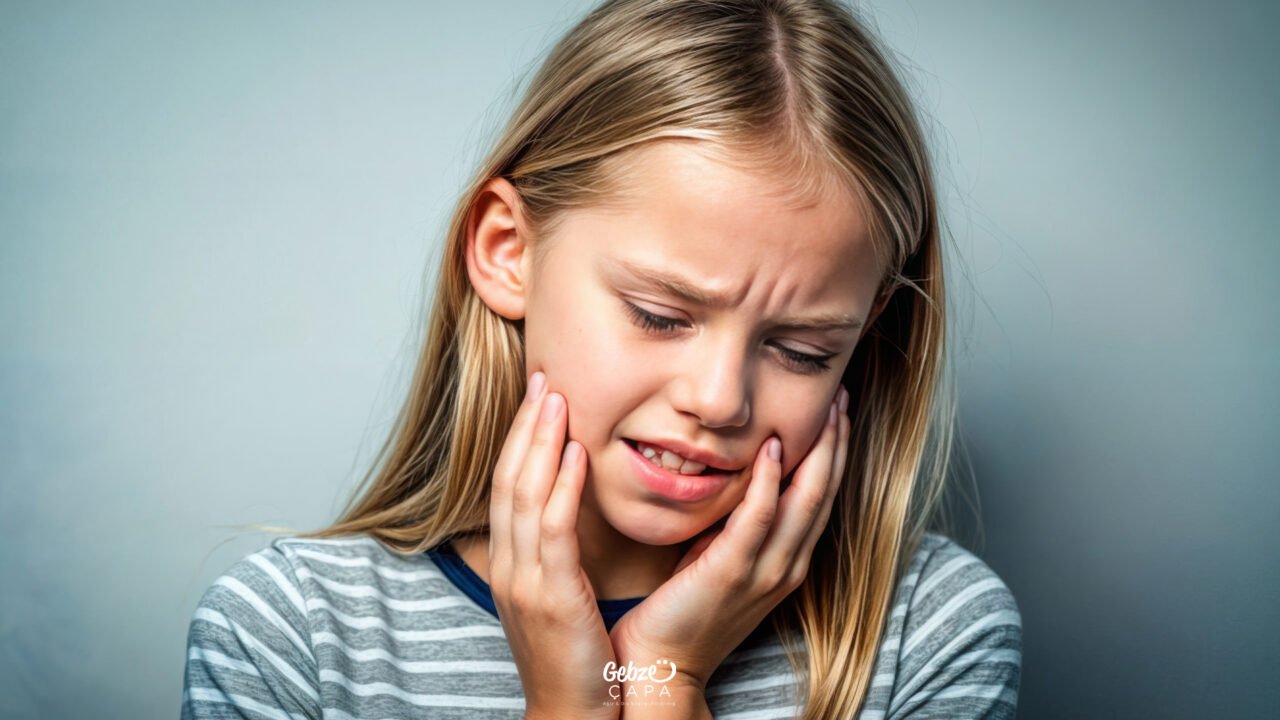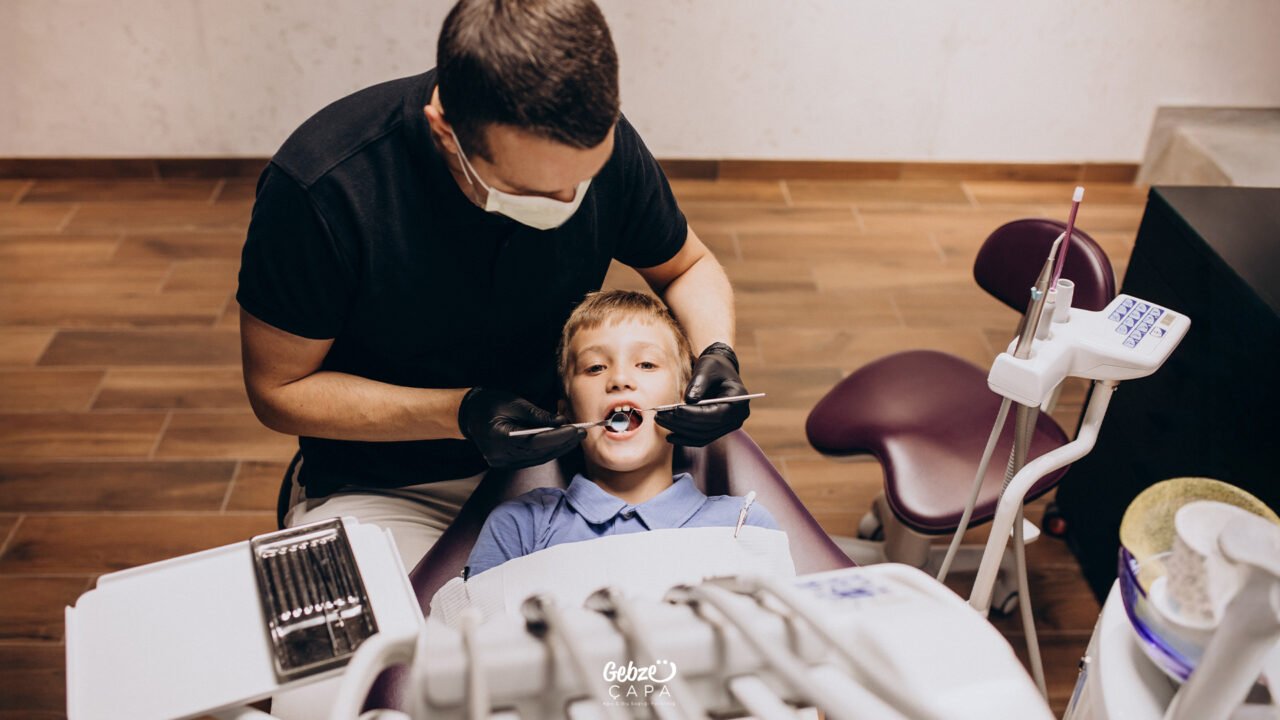What is Good for Toothache in Children?
Toothaches in children are one of the most common and challenging health problems parents encounter. Even a minor ache can negatively impact their daily lives, reducing their desire to play, leading to a loss of appetite, and disrupting their sleep patterns due to restlessness. Children, especially those with immature speech, often respond only with crying, restlessness, or refusal to eat because they cannot clearly express the pain they are experiencing. This leaves parents feeling both helpless and anxious.
Toothaches are a common condition during children’s developmental years, but they should never be ignored. Oral and dental health directly impacts not only the aesthetics of their smile but also their overall health and quality of life. Therefore, any toothache in children should be considered a significant health problem that requires careful attention.
Causes of Toothaches in Children
Toothaches in children can stem from many different conditions, not just one. It’s crucial for parents to understand these causes because the more accurately the source of the pain is understood, the easier it is to find a solution. Here are the most common causes of toothaches in children:
Cavities
Cavities are undoubtedly the most common cause of toothaches. Children love sugary foods and acidic drinks. However, frequent consumption of these foods, combined with insufficient brushing, can lead to cavities. A cavity, which begins as a small brown spot, progresses over time, causing both tooth sensitivity and pain. Children may react to hot and cold foods or experience pain when chewing. If not detected early, cavities can progress and lead to more serious problems.
Teething
Teething, which begins around six months in babies, can be quite challenging for both babies and their families. Itching, swelling, redness, and restlessness in the gums are common during this period. The child may constantly want to bite things, drool, and become fussy. While teething is a natural developmental stage, parents need to be patient, as it can cause pain and discomfort for the baby.

Gum Inflammation
Gum inflammation can also cause pain in children. Inadequate brushing, food particles trapped between teeth, and the growth of bacteria can cause the gums to become red, swollen, and painful to the touch. In some cases, bleeding can also occur. This is a significant problem affecting not only the teeth but also overall oral health. If not treated early, it can develop into more serious infections.
Dental Trauma
Children, due to their active nature, can frequently fall, bump while running, or experience accidents while playing. These situations can lead to trauma such as cracks, fractures, or loose teeth. Even if the child doesn’t feel immediate pain, this damage can progress to pain over time. Therefore, parents should take any impacts on their children’s teeth seriously and monitor them.
Permanent Teeth Erupting
The period when baby teeth begin to fall out and permanent teeth begin to appear can be painful. Gums may experience pressure, itching, and tenderness. While some children experience this period relatively mildly, others may experience significant pain. This is a natural part of a child’s growth process, but it can still cause pain and discomfort.
Toothache Symptoms in Children
Young children often can’t clearly describe the pain they’re experiencing, so it’s crucial for parents to pay attention to small details. If your child frequently puts their hand in their mouth, points at their teeth, or reacts to hard, hot, and cold foods while eating, this could be a sign of a toothache. Difficulty falling asleep, seemingly unexplained crying at night, loss of appetite, or restlessness even while playing can also indicate a dental problem.
In some cases, bad breath may be noticeable, and swelling, redness, or tenderness in the gums may be observed. Parents’ ability to accurately interpret these subtle but significant signals can help them recognize their child’s pain early and take the necessary precautions.

What Helps Children Relieve Toothaches?
First and foremost, it’s important to remember that home remedies don’t eliminate the source of the toothache; they only provide your child with some relief. For actual treatment, a dentist visit is essential. However, until you can make the appointment, you can try some simple methods to ease your child’s pain.
Gargle with warm salt water: If your child is old enough to gargle, adding a little salt to warm water and gargling can both reduce pain and prevent the growth of bacteria in the mouth.
Cold compress: Applying a cold compress briefly to the outside of the cheek can relieve swelling and pain. It’s important to never apply ice directly to the tooth or gum.
Oral hygiene: Gently brushing your teeth with a soft-bristled brush helps remove food particles trapped between them. Sometimes, this alone can relieve pain.
Warm water rinse: If a piece of food gets stuck between a tooth, rinsing your child’s mouth with warm water can be very helpful. This simple method can reduce the severity of the pain.
Painkillers: If the pain is very bothersome and the doctor has already prescribed medication, your child can be given acetaminophen or ibuprofen in a dose appropriate for their age and weight. Parental supervision is essential at this point, and medication should never be administered unintentionally.
What Not to Do for Toothaches in Children
Incorrect practices can worsen the pain. Therefore, the following methods should be avoided:
- Applying aspirin: Applying aspirin to a child’s tooth or gum can cause irritation.
- Using alcohol or vinegar: Can damage the child’s sensitive mouth.
- Forcing the tooth: Trying to remove a loose baby tooth can cause more pain and trauma.

How to Relieve Toothaches in Children
Taking preventative measures is the most effective way to prevent pain. Here are some things parents should pay attention to:
- Brushing your child’s teeth at least twice a day
- Limiting sugary foods and drinks
- Regular dental checkups (every 6 months)
- Teaching children how to floss
- Avoiding bottle-feeding (especially with milk or juice)


